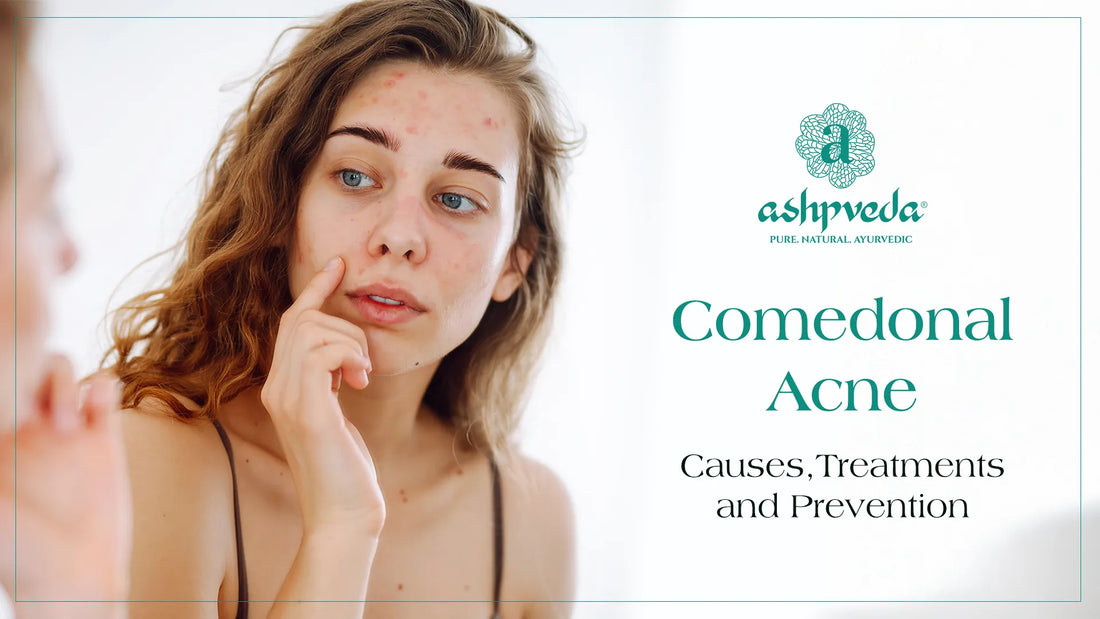
Comedonal acne is a prevalent skin condition characterized by non-inflammatory lesions, including blackheads and whiteheads. These blemishes result from clogged hair follicles due to excess sebum and dead skin cells. Understanding this condition is crucial for effective treatment and prevention.
Buy Anti Acne Skin Care Products
Understanding Comedonal Acne
Comedonal acne manifests as:
-
Blackheads (Open Comedones): Pores clogged with sebum and dead skin cells, exposed to air, leading to oxidation and a black appearance.
- Whiteheads (Closed Comedones): Clogged pores covered by a thin layer of skin, appearing as small, flesh-colored bumps.
Unlike inflammatory acne, comedonal acne doesn't cause redness or swelling but can progress if left untreated.
Read also: Difference between Pimple and Cold Sore
Common Causes of Comedonal Acne
Several factors contribute to the development of comedonal acne:
-
Excess Sebum Production: Overactive sebaceous glands can clog pores.
-
Hormonal Fluctuations: Changes during puberty, menstruation, or due to certain medications.
-
Improper Skincare: Using comedogenic products or inadequate cleansing routines.
-
Dietary Factors: High intake of dairy or high-glycemic foods.
- Genetics: Family history can increase susceptibility.
You need to know about Pustules
Affected Areas
Comedonal acne commonly appears on:
- Forehead
- Nose
- Chin
- Jawline
- Back and shoulders (less frequently)
Read this also: What Is an Emulsion Skincare?
Effective Treatments for Comedonal Acne
1. Topical Treatments
-
Retinoids (e.g., Adapalene, Tretinoin): Promote cell turnover and prevent clogged pores.
-
Salicylic Acid: Exfoliates the skin and clears pores.
-
Benzoyl Peroxide: Reduces bacteria and helps in mild cases.
- Azelaic Acid: Helps clear pores and improve skin texture.
2. Professional Treatments
-
Chemical Peels: Improve skin texture and reduce comedones.
-
Microdermabrasion: Gently exfoliates and clears clogged pores.
- Extraction: Dermatologists can manually remove comedones.
3. Lifestyle and Skincare Adjustments
- Use non-comedogenic skincare and makeup products.
- Avoid heavy creams and oils.
- Cleanse your face twice daily with a gentle cleanser.
- Refrain from touching your face frequently.
- Maintain a balanced diet rich in fruits and vegetables.
Let's read this one too: Best Skin Care Routine For Normal Skin
Ayurvedic Solutions from Ashpveda
Incorporating Ayurvedic products can offer natural and effective solutions for comedonal acne. Here are some recommendations from Ashpveda:
-
Ashpveda Natural Radiant Kashmiri Saffron and Neem Face Wash: This face wash combines the antibacterial properties of neem with the brightening effects of saffron, making it ideal for daily cleansing to prevent comedonal acne.
-
Ashpveda Cleanse & Hydrate Kit: A comprehensive kit that includes products designed to cleanse and hydrate the skin, maintaining its natural balance and preventing pore clogging.
-
Ashpveda Best Ayurvedic Night Cream for Skin Brightening: This night cream works overnight to rejuvenate the skin, helping to reduce the appearance of comedones and improve overall skin texture.
-
Ashpveda Hydrate & Shine Collection: A curated set of products aimed at hydrating the skin and restoring its natural glow, which can be beneficial in managing comedonal acne.
-
Ashpveda Get a Glow Gift Box: This gift box includes a selection of products that promote skin health and radiance, supporting the prevention and treatment of comedonal acne.
Read this also: Best Soaps for Acne or Pimple
Conclusion
Comedonal acne, while less inflamed than other types, requires diligent care and appropriate treatment. Incorporating Ayurvedic products from Ashpveda can offer natural and effective solutions. Remember to maintain a consistent skincare routine, adopt healthy lifestyle habits, and consult with a dermatologist if necessary.
FAQs About Comedonal Acne
- Is comedonal acne the same as regular acne?
No, comedonal acne refers specifically to non-inflammatory acne, such as blackheads and whiteheads. Regular acne can include papules, pustules, nodules, and cysts.
- Can diet affect comedonal acne?
Yes, diets high in dairy, sugar, and processed foods can trigger or worsen comedonal acne in some individuals.
- How long does it take to clear comedonal acne?
With consistent treatment, improvement can be seen within 6–12 weeks. Some cases may take longer depending on severity and skin type.
- Can I pop comedonal acne?
No, popping can lead to scarring and infection. It’s better to use treatments or consult a dermatologist.
- Is comedonal acne permanent?
No, with proper skincare and lifestyle changes, comedonal acne can be effectively managed or eliminated.
- Choosing a selection results in a full page refresh.





